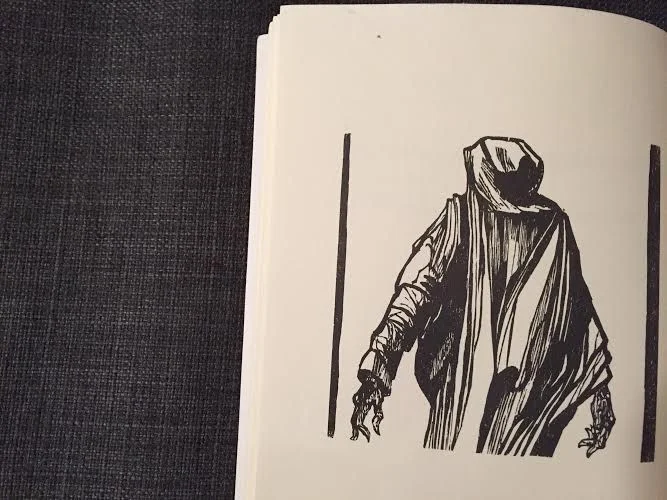Remembering Donald Hall
A decade ago, I was camping in the northern wilderness of Minnesota. The sky was a calm blue and all the lakes were frozen. Snowfall piled gingerly on every branch. I was wearing wool pants, long underwear made from polypropylene. My coat and sweater kept me warm. I turned the pages of a book of poems with gloved hands.
I was part of a Speech team in high school and each Saturday morning I would recite verse by a poet named Donald Hall. He had written a book called Without about the time leading up to the death of his wife, Jane Kenyon —also a poet— and his meditations about life after she's gone. I had already selected which poems to recite and ordered them into a program. But the problem with my acting was I still hadn't a strong grasp on love or death. And I wasn't really aware of how a writer worried a language into poetry. Over the course of about a week I would read and re-read Hall. As we cross-country skiied from campsite to campsite, with a toboggan pulled behind me and tied to my shoulders with blue rope, I'd repeat Hall's lines.
A portion of Without consists of letters written with no addresses. They're written to Jane, but they're also Hall writing the world around him in her absence. At New Year,
Do you remember our first
January at Eagle Pond,
the coldest in a century?
It dropped to thirty-eight below—
with no furnace, no storm
windows or insulation.
We sat reading or writing
in our two big chairs, either
side of the Glenwood,
and made love on the floor
with the stove open and roaring.
You were twenty-eight.
If someone had told us then
you would die in nineteen years,
would it have sounded
like almost enough time?
My relationship with poetry continues to steer its course, always keeping close the self-taught lessons of reading, memorizing, repeating beneath my breath. To love, to remember, to fill your writing with the joy of words.
The lives we lead are packed with more stories than we could think to tell. Rich details color our lives and are privately enjoyed, but we don't think to share these observations until much later. Sometimes these details are just incidental. We really meant to describe something else. This happens when describing a trip I've taken where I haven't quite found the words to describe why a sight or moment was so lovely. But over the course of a few years, it suddenly makes sense and we're ready to share it. . As a teller of stories, we revisit the memory. And as a listener, we learn some new detail and grow closer to them. This exchange happens with the people we love best.
In college I was deeply influenced by the poem "Exile," which was a hundred-line oratory written in metrical rhymes. The poem put him on the cover of Time magazine and arguably kept him from getting drafted to fight in the Korean war. It's still one of my favorite poems, but what's most curious is that Hall took these one hundred lines and threw out the majority of it. He cut it to just three rhyming couplets.
A boy who played and talked and read with me
Fell from a maple tree.
I loved her, but I told her I did not,
And wept, and then forgot.
I walked the streets where I was born and grew,
And all the streets were new.
It was my first lesson in radical revision and I owe much of my own tendencies as an editor to reading these two versions of the same poem. It also helped me understand the almost Heraclitean approach Hall would take the rest of his career. Each time you return to someplace familiar, it is different. And if you tell your stories with any intelligence, you'll tell a different story.
How many essays and poems I've read about his farmhouse in New Hampshire, I can't say. But I love hearing about the barn, his blue chair, the 400 feet of bookshelves, the bed where Jane died, the bed he hopes to die in, too. This intimacy of his life was his gift. For the last ten years, I've continued to read Hall with the same pleasure as when I first connected to him at 16, as though his life weren't just memoir but some Arthurian legend.
When I learned he had stopped writing poetry in 2010 I became concerned that he was going to die — and soon. I regularly googled his name to check his wikipedia. How long would my favorite poet go without writing poetry? This is a man who since his adolescence worked on poems every day. Even on Christmas, he'd boast to his children. Work was his most prominent subject besides death, perhaps. In his book length poem The One Day, he quotes Georgia O'Keefe: "The days you work are the best days." How was I not to worry?
I suppose I was most concerned that he'd die and I wouldn't know. But for many years, he just kept writing prose. Obama awarded him the National Medal of Arts. Now and then an article in the New Yorker would appear in my Facebook feed as a sponsored ad. Last week I learned his book "Notes Nearing Ninety" would be published in July. I shared the news on Facebook, and a few days later, he died, at 89.
I realize it's absurd to be so obsessed with an author's dying, as though there's anything I'm doing to benefit or comfort him. In his collection Essays After Eighty, he wrote, "Of course, we start dying when the sperm fucks the egg." Even so, I was saddened by the news and hope it was peaceful.
Readers unfamiliar with Hall's poetry may find a good jumpstart in White Apples and the Taste of Stone, his book of collected poems. Start in the beginning and work to the end.
Photo by Aram Boghosian for The Boston Globe






